Former competitive swimmer lost both legs battling sepsis in Mallorca
On August 2 last year Matthew Parkes and his wife Pamela arrived in Majorca with their four-year-old daughter to celebrate their fifth wedding anniversary with a week in the sun.
‘We thought Sophia would love to see where Mummy and Daddy had gone on their honeymoon,’ says Matthew, a 39-year-old former competitive swimmer, who couldn’t wait to start teaching his daughter how to swim in the hotel pool.
But the dream holiday for the family from Cheadle Hulme, near Stockport, soon turned into a nightmare.
On the second day, Matthew and Pamela developed sore throats. Mercifully, Sophia was unaffected, but her parents were both ‘very ill’, as Pamela, 40, a manager for a legal firm, recalls.
‘It didn’t seem like a normal sore throat.’
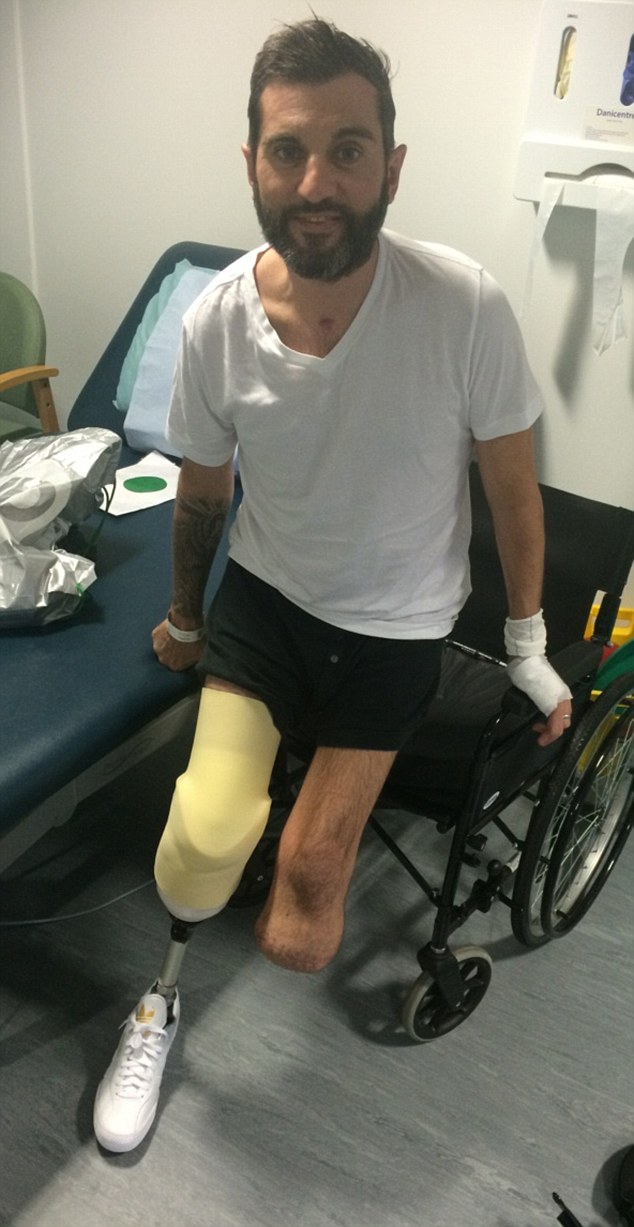
Former competitive swimmer Matthew Parkes lost both his legs battling sepsis, after he and his wife came down with a sore throat during a holiday in Mallorca
Matthew and Pamela had been infected with streptococcal A, a common bacterium responsible for many sore throats.
However, while Pamela’s infection would quickly clear up, just two days after becoming ill, Matthew was fighting for his life.
He’d developed sepsis, a life-threatening condition that can be triggered by any kind of infection, as simple as a tummy bug or a sore throat.
The body’s immune system over-reacts to the initial infection, attacking its own tissues and organs.
Caught in time, sepsis can be successfully treated with antibiotics, but even doctors struggle to recognise the symptoms.
Untreated, sepsis will quickly start to kill off tissue and the organs.
-
 Is the cure for baldness in sight? Four-month treatment…
Is the cure for baldness in sight? Four-month treatment… Why morning sickness isn’t so bad after all: Nausea while…
Why morning sickness isn’t so bad after all: Nausea while… New test could diagnose urinary infection within HOURS:…
New test could diagnose urinary infection within HOURS:… Teenager whose mother believed his headaches were from…
Teenager whose mother believed his headaches were from…
Every year it claims 44,000 lives in the UK — many of those could have been prevented.
The good news is that a campaign by the UK Sepsis Trust, backed by the Daily Mail, has resulted in the announcement earlier this month of a nationwide awareness programme.
From later this autumn posters in GP surgeries and hospitals across England will urge patients and parents to ‘Just ask: Could it be sepsis?’
Doctors in Majorca failed to spot the tell-tale signs in Matthew, and after a 24-hour delay in his diagnosis, he was in intensive care and would spend the next seven weeks in an induced coma.
And while he survived, it was at a terrible cost: he’s had both his legs amputated from just below the knee and lost most of his left hand.
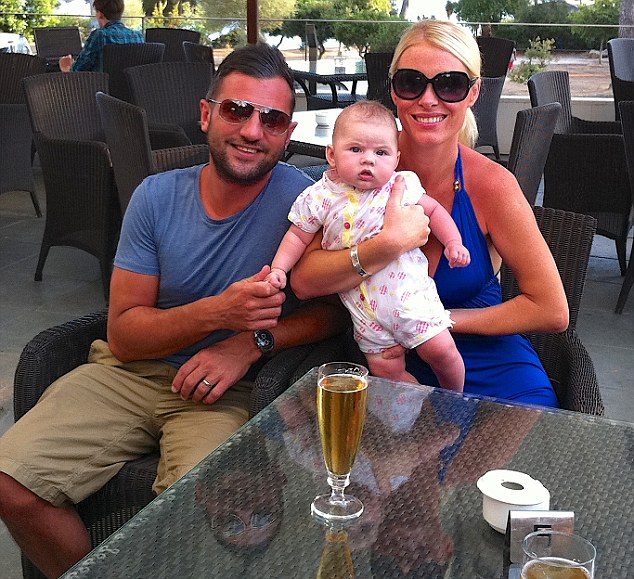
Doctors in Majorca failed to spot the tell-tale signs in Matthew, and after a 24-hour delay in his diagnosis, he was in intensive care and would spend the next seven weeks in an induced coma
Neither Matthew nor Pamela had even heard of sepsis before it changed their lives for ever.
Now they are telling their harrowing story in the hope that other families will be spared the same ordeal.
By the afternoon of the third day of the holiday, Matthew had pains all over his body. Alarmed, the couple went to a local public hospital.
This was the moment when everything could have turned out differently. Matthew was already displaying some of the tell-tale signs of sepsis, such as shortness of breath, a fever and chills.
At the very least antibiotics should have been given to fight what was clearly a serious infection.
But doctors inexplicably sent him away with diazepam, normally given for anxiety.
In fact Matthew was already in the grip of pneumonia, triggered by the strep A. infection that had now found its way into his lungs.
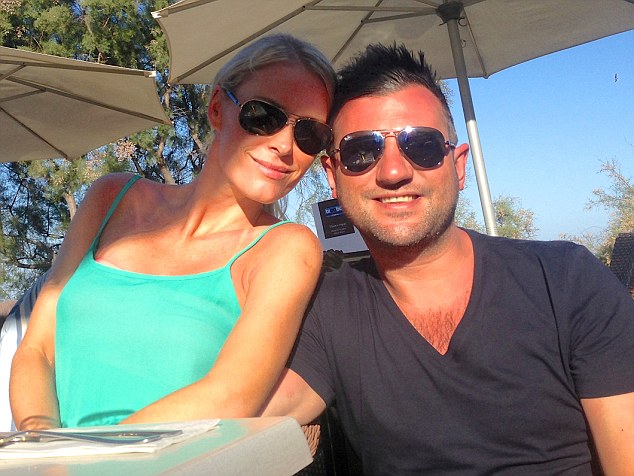
Neither Matthew nor Pamela had even heard of sepsis before it changed their lives for ever
By that evening, Pamela recalls, ‘we were both very ill’ and they spent a dreadful night, with Matthew pacing from balcony to bathroom to be sick, or lying curled up on the floor in agony, ‘making awful noises, like an animal’.
By next morning, Matthew had pains in his stomach, chest and back — ‘I honestly felt like I was dying,’ he says. Many victims who survive recall this ominous feeling.
Pamela was horrified when ‘he lifted up his top and it looked like he was nine months pregnant’.
A fit, slim man, his stomach was badly distended, almost certainly because his bowel was failing. His skin was purple and blotchy, his breathing was rapid and he had a high temperature, all signs of sepsis.
This time Pamela, who was starting to improve, took the family to the nearest private hospital. The decision almost certainly saved Matthew’s life.
‘They were fantastic, they spotted it straight away,’ she says. Crucially, he was given antibiotics.
He was rushed to intensive care and doctors told Pamela sepsis was shutting down his system. ‘They told me to say goodbye to him. They didn’t think he’d last the day. I couldn’t believe what was happening.’
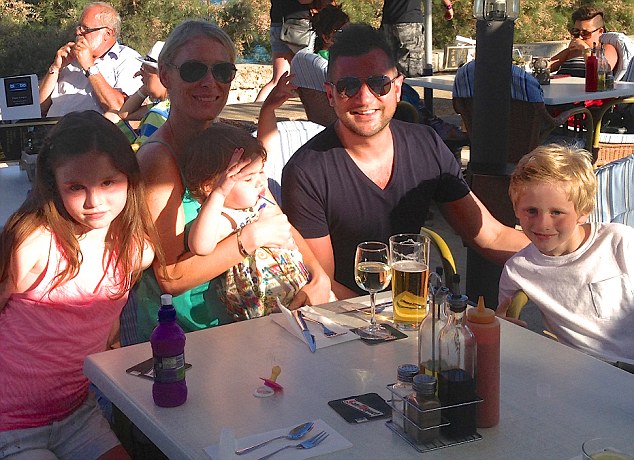
Now, Matthew and Pamela are telling their harrowing story in the hope that other families will be spared the same ordeal
Matthew’s kidneys had all but packed up and the doctors were preparing to transfer him to a hospital in Palma, an hour away, for emergency dialysis; a machine would have to do the work of his failing kidneys, removing the toxic waste from his blood.
In intensive care, he was readied for life support, but still conscious. ‘I was crying but I didn’t tell him what I knew,’ recalls Pamela.
‘He said: “You and Sophia have a nice time.” ’ They were the last words Matthew would speak for seven weeks.
‘I thought I’d lost him,’ says Pamela. ‘I just went onto autopilot because I had my child to think of.’
She took Sophia back to the hotel, changed out of their beach clothes and took a taxi to Palma. Pamela’s mother flew out that day to help with Sophia.
When she visited Matthew the following day, Pamela was horrified to see the skin on his lower legs and left hand had turned black. His limbs were dying because his lungs couldn’t supply enough oxygen.
The doctors ‘didn’t sugar-coat it’, says Pamela. ‘They said he would need amputations but they didn’t actually think he’d survive.’
Sophia and her grandmother flew home on the Sunday and Pamela moved to a hotel near the hospital.
For the next three weeks she visited three times a day. ‘I just sat with him, talked or played music in his ear,’ she says.
On August 31, she had to fly home because their daughter was about to start primary school. ‘I told the doctors: “I can be back in six hours if you think he’s going to die.” ’
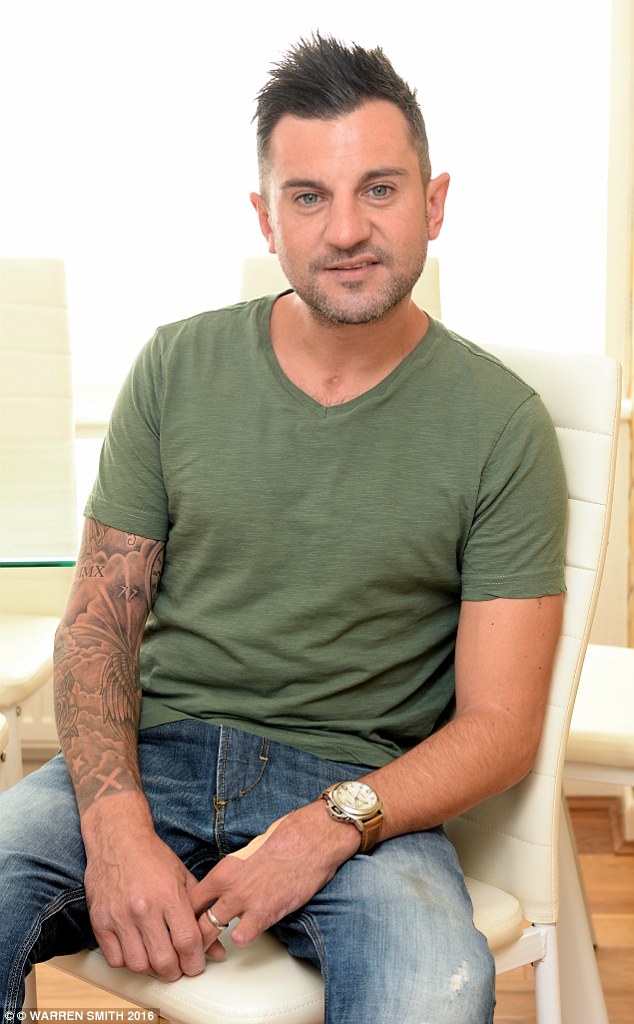
For the next three weeks after Matthew’s symptoms worsened, Pamela visited three times a day. ‘I just sat with him, talked or played music in his ear,’ she says
In fact, Matthew had already started to show signs of improvement and in early September he was flown back to Manchester by air ambulance where he was admitted to Wythenshawe Hospital.
‘I was so relieved,’ says Pamela. ‘As bad as it sounds, if he was going pass away, then at least he was going to do so with his family by his side.’
With his lungs no longer needing mechanical support and his other organs almost back to normal, doctors decided to bring Matthew out of his coma at the end of September.
‘I can’t remember much about being woken,’ he says. But he does remember feeling ‘very, very scared’.
It was Pamela who broke the news, a week after he’d come round, that both legs would have to be amputated about 7in below the knees. ‘It took a long time to sink in,’ says Matthew. When it did, ‘I was in despair.’
The operation took place two weeks later. When Matthew came round, he says: ‘I looked down and there were two spaces where my legs used to be, with no feet sticking up at the end. I was heartbroken.’
Even now, almost a year on, talking about that moment chokes him up. ‘It was a very, very hard day,’ he says.
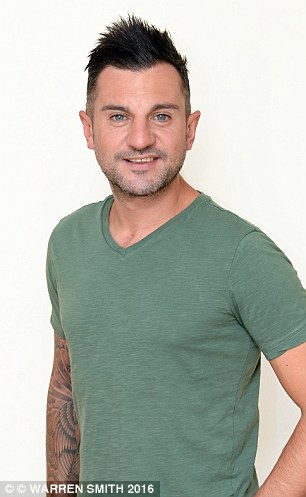
With his lungs no longer needing mechanical support, doctors decided to bring Matthew out of his coma at the end of September
And there have been many hard days since. A week later, Matthew underwent another operation to remove nearly all the fingers and a third of the palm of his left hand.
He found two crumbs of comfort; the only finger to survive intact was his ring finger, and he was naturally right-handed.
Weeks of painful physiotherapy followed. At first, he was so weak that just sitting up was a challenge.
Then came the wheelchair, ‘a massively positive moment’, he says. ‘I remember thinking at least I’ve got some independence again.’
Two weeks before he was discharged from hospital, on December 14, Matthew was fitted with prosthetic legs and stood for the first time, ‘dizzy but elated’. He says learning to walk again at 39 was ‘a very weird feeling at first, because they weren’t my legs’.
He quickly progressed to a walking frame then to a walking stick, which he still has, ‘though I can pretty much walk without it now’.
During his darker moments he thought he’d be in a wheelchair for the rest of his life.
But thanks to the support of Sophia and Pamela, and Helena, 13, and Luka, 12, her two children from a previous marriage, he’s found the strength to claim his life back.
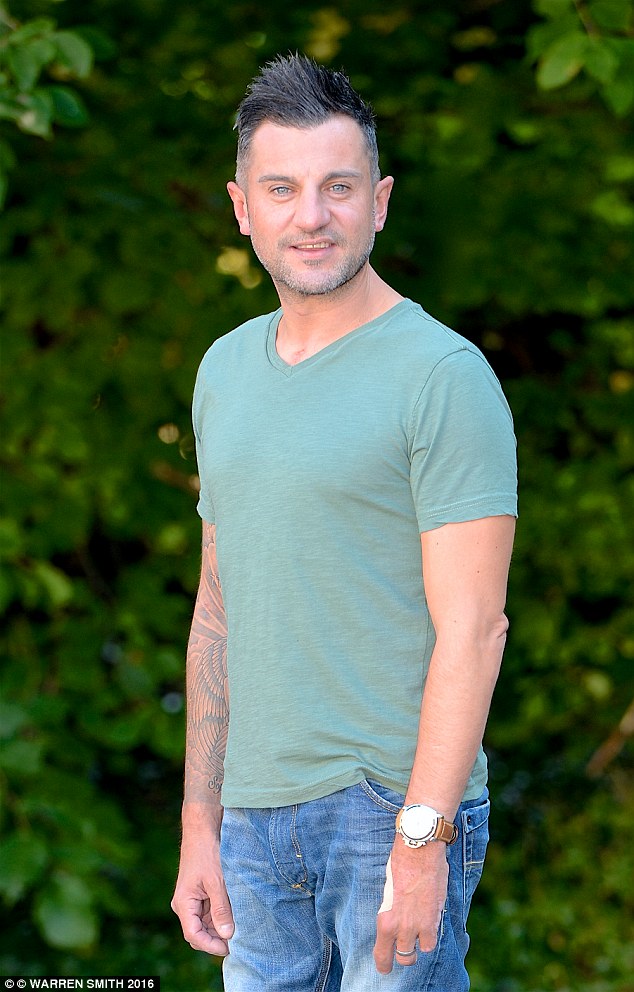
Thanks to the support of Sophia and Pamela, and Helena, 13, and Luka, 12, her two children from a previous marriage, Matthew has found the strength to claim his life back
Now Matthew is swimming again, four or five times a week, and every day he picks up Sophia from school by taxi.
He hasn’t returned to work yet — before his illness he was a corporate account manager for an IT and telecoms company — the family manages on Matthew’s disability benefit and Pamela’s salary.
He is determined to do his bit at home — a three-storey townhouse which gives his new legs a daily workout.
THE WARNING SIGNS
If a child or adult who has had any infection — even a mild cold — develops one or more of the following symptoms, call 999 immediately and say you think they have sepsis:
1. Abnormally cold to touch.
2. Breathing rapidly or struggling for breath.
3. Very lethargic or difficult to rouse.
4. No urine (or wet nappy) for more than 12 hours.
5. Skin mottled, blueish or extremely pale.
If sepsis is suspected by doctors, treatment with antibiotics must begin as soon as possible — ideally within one hour of diagnosis — even before blood tests have been carried out.
‘Pam gives me a list of jobs before she goes to work,’ he laughs. Sepsis, he says, ‘has changed my life. But I’m a lucky man — I’m alive.’
Both Matthew and Pamela bitterly wish they had heard of sepsis much sooner. ‘If we’d known then what we know now, perhaps we’d have spotted the signs and asked doctors to check for it,’ says Pamela.
She’s in no doubt that the 24-hour delay in Majorca cost him his legs and nearly his life.
As sepsis campaigner Melissa Mead, whose one-year-old son William tragically died from the condition in 2014, points out: ‘It’s vital we spread awareness of sepsis.
The Daily Mail has championed the public awareness initiative we have been campaigning for, and this support is invaluable. We need everyone to be aware of what to look for.
Matthew adds: ‘We want some good to come out of this very bad situation.
‘If I can help to raise awareness of this horrific disease, not just with the general public but also among doctors, then what happened to me will not have been for nothing. If I can save one life, I’ll be happy.’
sepsistrust.org